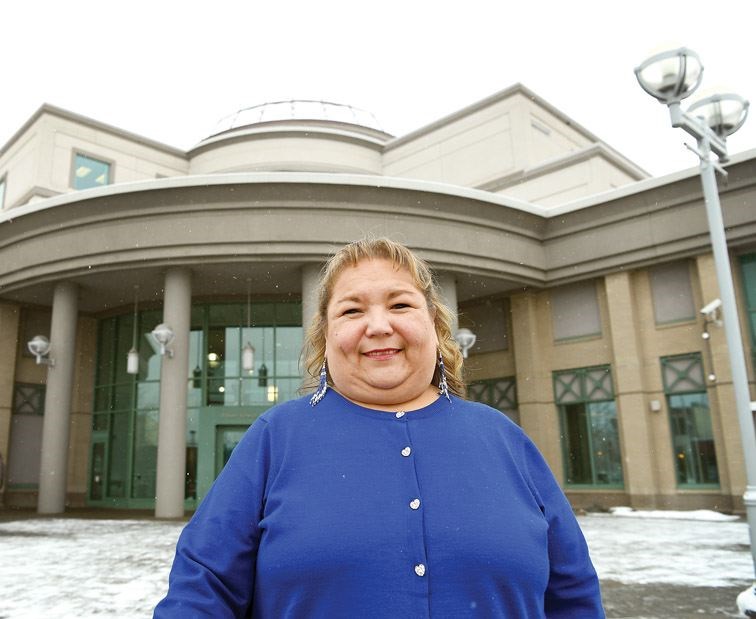A new kind of legal proceeding aimed at reducing the number of indigenous people revolving through the criminal justice system is coming to Prince George, and one of its biggest proponents wants to make one thing perfectly clear.
"It's not a simple get out of jail free card like some people may interpret this initiative," Christina Draegen said this week.
The northern regional manager of the Native Courtworker and Counselling Association of B.C. has been at the forefront of a three-year process to bring to the city what the B.C. Provincial Court is calling a First Nations court.
Draegen prefers to call it an indigenous court and stresses it is open to anyone who self-identifies as indigenous. Holding a status card is not a prerequisite.
Starting on the first Tuesday in April and continuing on the same day each month thereafter, a provincial court judge will step down from behind the bench and sit at a table with a group of elders, lawyers, court workers and other stakeholders to work out a "healing plan" for the accused.
Don't let the name fool you. Living up to the plan will entail "a lot of work" on behalf of the subject, Draegen emphasized.
"Those who want to pursue this option will require great dedication and determination and a willingness to shift...in how they approach life," she continued.
Restoring cultural pride and erasing feelings of insignificance will be a major aspect.
"When you're coming from a place of insignificance, it's disempowering," Draegen said. "We're trying to break that and we're trying to give that person a chance to reconnect with their cultural being, their cultural identity so that they come out of that understanding and knowing that they are very significant."
Identifying any underlying health troubles, both mental and physical, such as fetal alcohol syndrome and the intergenerational trauma brought on by the experiences many endured while attending residential schools, will also play a role.
Candidates won't be left stranded. Elders, staff from Urban Aboriginal Justice and the probation office will help with a strategy to get the supports they need.
It adds up to a form of restorative justice in which the offender seeks to become a better person and, where possible, make it up to the victim for the damage caused by the crime committed.
That process could take anywhere from six months to a year. Ceremonies will be held for those who complete their plans; for those who don't there could be consequences - even jail.
Candidates are chosen by Crown counsel based on referrals from arresting police officers, native court workers and defence lawyers. The person must have pleaded guilty to the offence - which much be minor and have been committed in the city - and have agreed to taking the route.
"We're looking for those folks that have found themselves in that revolving door in the criminal justice system," Draegen said.
Aboriginal people make up five per cent of the province's population and about 11 per cent of the city's. But they account for nearly one-quarter of B.C.'s prison population and, according to Draegen, about three-quarters of the inmates at Prince George Regional Correctional Centre.
(Indigenous refers to both aboriginal and Metis.)
Coinciding with the new approach, Draegen is hoping non-indigenous people will also come to a greater understanding of where aboriginal people are coming from. She regards Prime Minister Stephen Harper's official apology for the residential schools in 2008 as a turning point.
"Now we're believed," Draegen said. "When you've come from a place of abuse and you're not believed, there's no place for healing."
That process will be a long journey, Draegen warned.
"This is going to take some time," she said. "It's seven generations of this trauma and we're in just the first couple of years of healing so it's not something that's going to happen overnight."
An opening ceremony for the court's launch is set for Fri., March 23 at the Civic Centre, 10 a.m. start. Everyone is welcome and lunch is provided.



